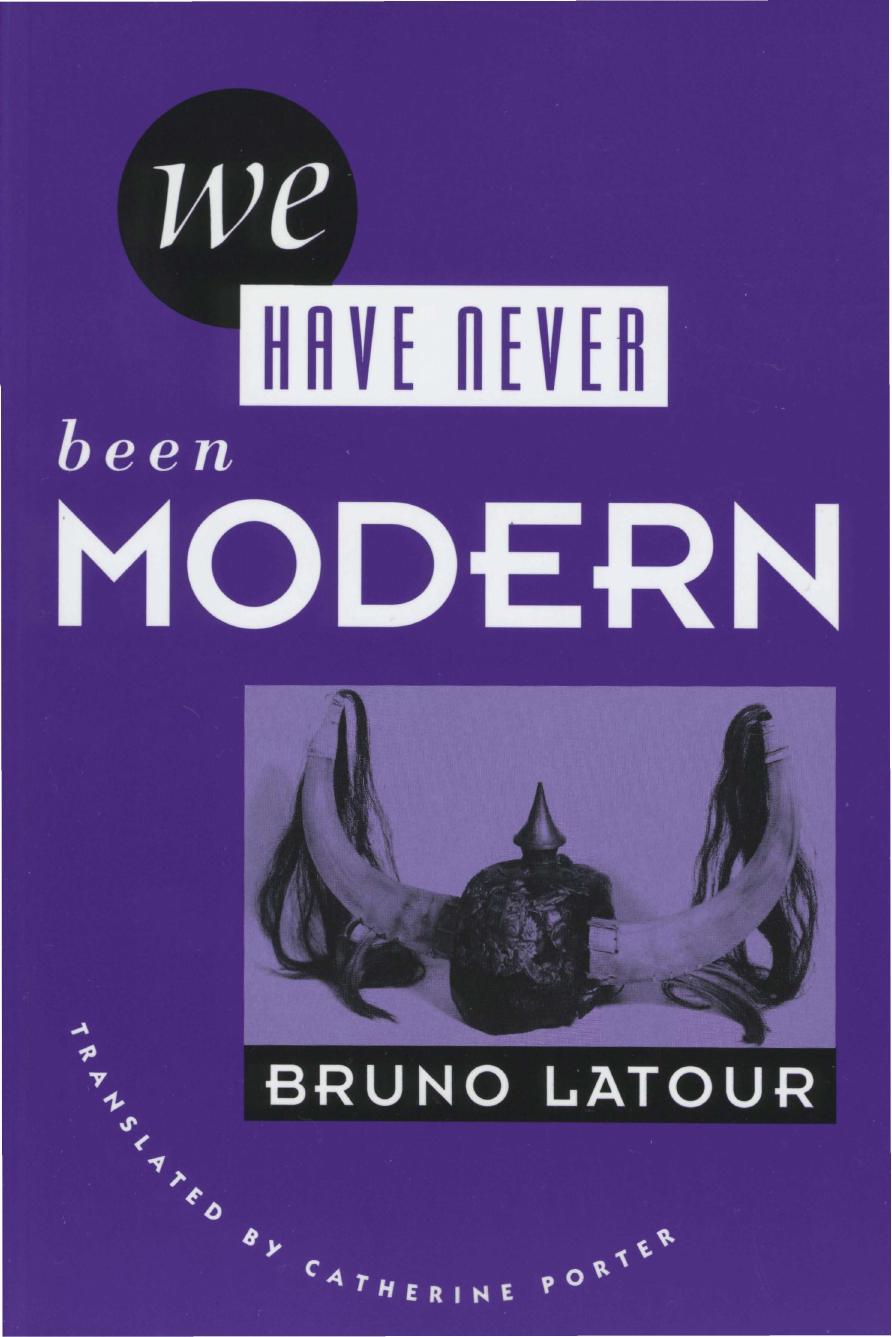We Have Never Been Modern by Bruno Latour

Author:Bruno Latour [Latour, Bruno]
Language: eng
Format: epub, pdf
Publisher: Harvard University Press
Published: 0101-01-01T00:00:00+00:00
3.11 A Copernican Counter-revolution
If we had been able to keep the human multitudes and the nonhuman environment repressed behind us longer, we would probably have been able to continue to believe that modern times were really passing while eliminating everything in their path. But the repressed has returned. The human masses are here again, in the East as well as in the South, and the infinite variety of nonhuman masses have arrived from Everywhere. They can no longer be exploited. They can no longer be surpassed, because nothing surpasses them any longer. There is nothing greater than the nature surrounding us; Eastern peoples can no longer be reduced to their proletarian avant-gardes; as for the Third World masses, nothing will circumscribe them. How can we absorb them? The moderns raise the question in anguish. How can they all be modernized? We might have done it; we thought we could do it; we can no longer believe it possible. Like a great ocean liner that slows down and then comes to a standstill in the Sargasso Sea, the moderns’ time has finally been suspended. But time has nothing to do with it. The connections among beings alone make time. It was the systematic connection of entities in a coherent whole that constituted the flow of modern time. Now that this laminary flow has become turbulent, we can give up analyses of the empty framework of temporality and return to passing time – that is, to beings and their relationships, to the networks that construct irreversibility and reversibility.
But how can the principle for classifying entities be changed? How can the illegitimate multitudes be given a representation, a lineage, a civil status? How can this terra incognita that is nevertheless so familiar to us be explored? How can we go from the world of objects or that of subjects to what I have called quasi-objects or quasi-subjects? How can we move from transcendent/immanent Nature to a nature that is still just as real, but extracted from the scientific laboratory and then transformed into external reality? How can we shift from immanent/transcendent Society toward collectives of humans and nonhumans? How can we go from the transcendent/immanent crossed-out God to the God of origins who should perhaps be called the God below? How are we to gain access to networks, those beings whose topology is so odd and whose ontology is even more unusual, beings that possess both the capacity to connect and the capacity to divide – that is, the capacity to produce both time and space? How are we to conceptualize the Middle Kingdom? As I have said, we have to trace both the modern dimension and the nonmodern dimension, we have to deploy the latitude and longitude that will allow us to draw maps adapted both to the work of mediation and to the work of purification.
The moderns knew perfectly well how to conceive of this Kingdom. They did not make quasi-objects disappear by eradication and denial, as if they wanted to simply repress them.
Download
This site does not store any files on its server. We only index and link to content provided by other sites. Please contact the content providers to delete copyright contents if any and email us, we'll remove relevant links or contents immediately.
Learning SQL by Alan Beaulieu(6282)
Weapons of Math Destruction by Cathy O'Neil(6268)
Digital Minimalism by Cal Newport;(5751)
iGen by Jean M. Twenge(5409)
Sapiens by Yuval Noah Harari(5366)
The Age of Surveillance Capitalism by Shoshana Zuboff(4282)
Elon Musk by Ashlee Vance(4122)
Thing Explainer by Randall Munroe(3932)
Apollo 8 by Jeffrey Kluger(3707)
Future Crimes by Marc Goodman(3595)
The Science Book (Big Ideas Simply Explained) by DK(3278)
The Innovators: How a Group of Hackers, Geniuses, and Geeks Created the Digital Revolution by Walter Isaacson(3171)
Who Can You Trust? by Rachel Botsman(3131)
I Live in the Future & Here's How It Works by Nick Bilton(2995)
Infinite Energy Technologies by Finley Eversole(2977)
Steve Jobs by Walter Isaacson(2892)
Dawn of the New Everything by Jaron Lanier(2770)
Chernobyl by Serhii Plokhy(2536)
Ben Franklin's Almanac by Candace Fleming(2527)
